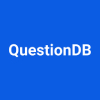Top 16 Tools for Keyword Research: Find the Right Keywords with Ease
Welcome, fellow SEO enthusiasts! As we all know, keyword research is a critical component of any successful search engine optimization (SEO) strategy. But finding the right keywords can be a daunting task, especially with the ever-changing landscape of search engines. That's why we've put together a list of the top 10 keyword research tools to help you find the best keywords for your website or content. These tools have been tested and proven to be effective in identifying the right keywords that can boost your website's traffic and improve your search engine rankings. So, whether you're a seasoned SEO expert or just starting out, these tools can help take your strategy to the next level.

All in one SEO tool starting at $29. Productive keyword research, SERP analysis, rank tracking and backlink analysis thanks to super easy to use tools.
Visit website➔

Advanced Web Ranking is a cunningly crafted software tool that assists digital marketers and website owners in tracking and optimizing their website's search engine performance. This platform is equipped with an arsenal of features that empower users to analyze, monitor, and improve their website's rankings.
Visit website➔
A powerful all-in-one SEO tool that provides features such as keyword research, backlink analysis, and site audits.
Visit website➔
AnswerThePublic listens into autocomplete data from search engines like Google then quickly cranks out every useful phrase and question people are asking around your keyword. It’s a goldmine of consumer insight you can use to create fresh, ultra-useful content, products and services. The kind your customers really want.
Visit website➔
Industry-leading SEO software is trusted by marketers around the world. The software provides search engine ranking and keyword data to automate SEO monitoring, track local and mobile rankings, and recover not provided keywords.
Visit website➔
BrightEdge is an enterprise-level SEO platform that provides tools and insights to help businesses improve their organic search rankings and online visibility.
Visit website➔
ContentKing keeps track of your website 24/7 so that you can catch unexpected changes and issues before search engines and visitors do.
Visit website➔
The right keywords can get your ad in front of the right customers, and Google Ads Keyword Planner is there to help.
Visit website➔
Search Console tools and reports help you measure your site's Search traffic and performance, fix issues, and make your site shine in Google Search results.
Visit website➔
Google Trends is a website by Google that analyzes the popularity of top search queries in Google Search across various regions and languages. The website uses graphs to compare the search volume of different queries over time.
Visit website➔
Jaaxy is the industry's only keyword and research platform that was developed by affiliate marketers FOR affiliate marketers.
Visit website➔
Accurate keyword rank tracking and competitor insights to outsmart even the smartest SEOs.
Visit website➔
The Keywords Everywhere browser add-on can be easily installed on either Chrome or Firefox. The best part is that we show you monthly search volume, CPC and competition data of keywords on multiple websites.
Visit website➔
Linkody is a backlink checker tool that helps you track your backlinks and monitor your link building campaigns. It allows you to keep an eye on your competitors' backlinks and monitor any changes in your own backlink profile.
Visit website➔
A backlink analysis tool that helps you understand the quality and quantity of links pointing to your website.
Visit website➔
The best monitoring tool for backlinks and keywords, period. Check the good and bad backlinks for you and the competition.
Visit website➔
Moz Pro is a comprehensive suite of SEO tools that provides everything you need to optimize your website's search engine ranking.
Visit website➔
Nightwatch is a cloud-based SEO and analytics tool designed for digital marketers and website owners. The platform offers a comprehensive suite of features that allow users to monitor, analyze, and optimize their website's search engine performance.
Visit website➔
QuestionDB is not your typical keyword question tool. It can be be incredibly powerful and valuable for writers and marketers trying to grow a blog, but you need to use it correctly.
Visit website➔Rank Tracker is a software tool that helps website owners and digital marketers track the performance of their websites in search engine results pages (SERPs).
Visit website➔
A suite of SEO and marketing tools that includes features such as site audits, keyword research, and rank tracking.
Visit website➔
SE Ranking is a cloud-based all-in-one SEO platform designed for digital marketers, SEO professionals, and website owners.
Visit website➔
1,000s of Small Business Owners trust SECockpit for better keyword research. We make it easy to find the right keywords you can optimize or bid for, that bring more customers to your website.
Visit website➔
Comprehensive SEO tool that offers features such as keyword research, competitor analysis, and site audits.
Visit website➔
Link-Assistant is a software tool that helps website owners and digital marketers manage their website's backlink profile and improve their website's search engine rankings.
Visit website➔
An all-in-one SEO platform that offers features such as keyword research, site audits, and competitor analysis.
Visit website➔
Sitechecker.pro is a comprehensive SEO tool that offers a wide range of features to help website owners optimize their sites for search engines. It provides a variety of tools that analyze different aspects of a website, including on-page SEO, technical SEO, content quality, and website speed.
Visit website➔
Scrape suggested keywords from multiple sources. Soovle gives you suggested keyword ideas from Google, YouTube, Bing, Yahoo, Amazon and more.
Visit website➔
Ubersuggest is a keyword research and SEO tool created by Neil Patel, a well-known digital marketing expert. The tool allows users to generate keyword ideas and analyze keyword metrics, such as search volume, competition, and cost per click (CPC).
Visit website➔Good to know...
What features should I look for in a keyword research tool?
When looking for a keyword research tool, some of the features you should consider include:
- Keyword suggestions: A good keyword research tool should provide a wide range of relevant keywords and variations based on your query or seed keyword.
- Search volume and competition analysis: The tool should show you the search volume and competition level for each keyword suggestion, helping you prioritize keywords with higher search volume and lower competition.
- SERP analysis: A tool that provides SERP analysis can help you see what type of content is ranking for your target keywords and give you insights on how to optimize your own content.
- Long-tail keyword suggestions: Long-tail keywords are more specific and usually have lower competition, making them easier to rank for. A good keyword research tool should provide long-tail keyword suggestions.
- Keyword trends: Keyword trends can help you understand the seasonality of different keywords, and adjust your content strategy accordingly. The tool should provide insights into the search volume trends over time for different keywords.
- Competitor analysis: A tool that can analyze your competitor's keywords and content can give you insights on what keywords they are targeting and how you can improve your own content strategy.
- User-friendly interface: A tool that is easy to use and navigate will save you time and make your keyword research process more efficient.
- Integration with other SEO tools: A keyword research tool that integrates with other SEO tools can help streamline your SEO workflow and make your data analysis more accurate.
- Cost: Cost is also an important consideration when selecting a keyword research tool. You should choose a tool that provides the features you need at a price that is within your budget.
What are the top pros and cons of keyword research tools?
Keyword research tools can be highly beneficial for optimizing your content and improving your SEO strategy. However, like any tool, they also have their drawbacks. Here are some of the top pros and cons of keyword research tools:
Pros:
- Saves time: Keyword research tools can save a significant amount of time by generating a wide range of relevant keyword suggestions quickly and efficiently.
- Provides insights: Keyword research tools provide insights into search volume, competition, and trends, helping you identify the best keywords to target for your content.
- Improves SEO: By identifying the right keywords to target, keyword research tools can help improve your content's visibility in search engine results pages (SERPs), ultimately boosting your SEO efforts.
- User-friendly: Many keyword research tools are user-friendly and require little to no technical knowledge, making them accessible to a wide range of users.
- Cost-effective: Keyword research tools can be cost-effective, with many free or low-cost options available, making them a budget-friendly option for businesses of all sizes.
Cons:
- Limited accuracy: While keyword research tools can provide valuable insights, they may not always be accurate, and the data should be used as a guide, rather than a definitive answer.
- Limited functionality: Some keyword research tools may have limited functionality, providing only basic insights into keyword data.
- Limited regional or language data: Some keyword research tools may not provide data for specific regions or languages, which can limit their effectiveness for businesses operating in those markets.
- Dependent on search engines: Keyword research tools are dependent on search engines, which may change their algorithms or data sources, affecting the accuracy of the data provided.
- Limited customization: Keyword research tools may not provide the flexibility to customize results to fit your specific business needs or niche.
How do keyword research tools generate keyword suggestions and analyze search volume?
Keyword research tools use a variety of methods to generate keyword suggestions and analyze search volume. Some of the most common methods include:
- Keyword suggestion based on seed keywords: Many keyword research tools allow you to enter a set of seed keywords, which the tool will use to generate a list of related keywords. This list can be further expanded by including variations of the seed keywords, such as synonyms, plural versions, and related phrases.
- Analysis of search data: Many keyword research tools also analyze actual search data to identify popular keywords and search queries. This data is typically sourced from search engines like Google and Bing, as well as third-party providers like Moz and Ahrefs.
- Competitor analysis: Some keyword research tools allow you to analyze the keyword strategies of your competitors, identifying keywords that they are targeting and ranking for.
- Search volume analysis: Once a list of keywords has been generated, keyword research tools typically provide data on search volume, competition, and other metrics that can help you assess the value of each keyword.
- Trend analysis: Some keyword research tools also provide trend analysis, allowing you to see how the popularity of certain keywords has changed over time.
By using a combination of these methods, keyword research tools can provide valuable insights into which keywords are worth targeting for your SEO strategy, and how to optimize your website's content and metadata to rank more effectively for those keywords.
What types of keywords can I research with a keyword research tool?
Keyword research tools allow you to research a wide range of keyword types, including:
- Short-tail keywords: These are typically one or two-word phrases that are more general and competitive, such as "shoes" or "SEO."
- Long-tail keywords: These are longer phrases that are more specific and less competitive, such as "men's running shoes under $50" or "best SEO tools for small businesses."
- Branded keywords: These are keywords that include your brand name or specific products or services that you offer, such as "Nike running shoes" or "SEO audit services."
- Local keywords: These are keywords that include specific geographic locations, such as "Los Angeles restaurants" or "NYC pet stores."
- Related keywords: These are keywords that are related to your main target keywords, such as synonyms or related phrases.
By researching and targeting a range of different keyword types, you can create a comprehensive SEO strategy that addresses a wide range of search queries and maximizes your website's visibility in search results.
Can I use a keyword research tool to analyze my competitors' keyword strategies?
Yes, many keyword research tools allow you to analyze your competitors' keyword strategies. By identifying the keywords that your competitors are targeting and ranking for, you can gain valuable insights into their SEO strategy and adjust your own strategy accordingly.
To analyze your competitors' keyword strategies using a keyword research tool, you typically need to enter your competitors' website URLs into the tool. The tool will then generate a list of keywords that your competitors are ranking for, along with data on search volume, competition, and other metrics.
By analyzing this data, you can identify gaps in your own keyword strategy, find new keywords to target, and assess the competitiveness of different keyword opportunities. You can also use this information to optimize your website's content and metadata to better target the keywords that your competitors are ranking for.
Overall, using a keyword research tool to analyze your competitors' keyword strategies can be a valuable part of your SEO strategy, helping you stay ahead of the competition and improve your website's visibility in search results.
How do I integrate keyword research data into my website's content and metadata?
Integrating keyword research data into your website's content and metadata is an essential part of optimizing your website for search engines. Here are some tips for integrating keyword research data into your website:
- Identify your target keywords: Start by using a keyword research tool to identify the keywords that are most relevant to your business and have high search volume and low competition.
- Optimize your website's content: Once you have identified your target keywords, optimize your website's content to include those keywords in a natural and relevant way. This can include incorporating keywords into your page titles, headings, meta descriptions, and body text.
- Use long-tail keywords: In addition to targeting short-tail keywords, also include long-tail keywords in your content. Long-tail keywords are more specific and less competitive, and can help you target more niche search queries.
- Avoid keyword stuffing: While it's important to include your target keywords in your content and metadata, it's also important to avoid keyword stuffing. Keyword stuffing refers to the practice of overusing keywords in an unnatural way, which can harm your website's SEO.
- Monitor and adjust: Once you have optimized your website's content and metadata, monitor your search engine rankings and make adjustments as needed. This can include tweaking your keyword strategy, optimizing your content further, and staying up-to-date with changes in search engine algorithms.
By integrating keyword research data into your website's content and metadata, you can improve your website's visibility in search results and attract more targeted traffic to your site.